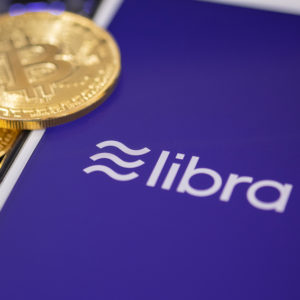Editor’s Note: For an alternative viewpoint, please see CounterPoint: Shut Down Facebook’s Currency Plan Before It Begins
It’s easy to project the flaws of Facebook onto Libra, the social media giant’s cryptocurrency project, slated to debut in 2020. What would become of financial privacy in the hands of a company that has done so poorly as a personal data steward?
It’s a valid concern, and there are others. But none are so strong that we should reject the opportunities for choice and empowerment that come with new forms of money and financial services. Criticism should test and shape the offering, but Libra should not be slowed or stopped.
Most Americans have probably never thought of money as a consumer product that could be subject to competition. But it can be, and it will. What do people look for in money? Well, it has to have reliable value. It has to be widely accepted. It has to be easy and fairly inexpensive to transfer. Easy to secure. It’s nice if it can be transferred privately. It’s also nice if it’s hard to steal or seize.
Anything can be money. For much of humanity’s early history, basic commodities such as salt, cattle, cowrie shells and precious metals served as essential lubricants of trade. Today’s bills improved on four-legged beasts and ingots of metal.
Originally redeemable for “real” valuables, paper notes came to be treated as valuable in and of themselves. Growth in the extent of commerce, though, meant that counterfeiters were hard to discover and punish. Governments stepped in because they could assure notes across wide areas.
Times and technologies change. Most money movements have gone digital. And with the advent of blockchain technology, the anti-counterfeiting function is an automated part of the software that maintains and transfers cryptocurrencies directly online. Money doesn’t have to be government-provided.
So how does Libra stack up as a consumer product?
It will be backed by a basket of major government currencies, so its value and inflation-resistance should be on par with those currencies. That actually means continual losses of a few percent per year. It’s a standard practice of governments to debase their currencies’ value. But using Libra will be great for people in countries with mismanaged currencies from A to Z: Argentina to Zimbabwe.
With its tremendous user base, Facebook can help make Libra widely accepted. Unlikely to catch up with the dollar, it could easily eclipse projects such as Bitcoin, which has eschewed day-to-day use in favor of perfecting its decentralization and security against censorship.
Where Libra may really shine is in easy, inexpensive transfer. Facebook and its partners in the Libra Foundation understand “user experience.” They can build digital wallets and exchange platforms that are easy to use, another area where Bitcoin is lacking. Libra users may avoid ATM fees, bank service charges, and the fees merchants pass on to consumers for credit and debit card payments.
Then there are the savings to people in parts of the world without our sophisticated financial services industry. Remittance services charge double-digit percentages. In many parts of the global south, banks are hard to access, and their fees are high and unreliable. The result? A financial services system that excludes 1.7 billion people.
For financial outcasts, it’s harder to save, to start or expand a small enterprise, to educate children, to provide for family health care and much more. The status quo in global financial services is a scandal.
Part of the scandal is the surveillance system operated by the financial sector on behalf of governments worldwide. Mandated customer background checks, suspicious activity reporting, and high-value transaction reporting impose costs disproportionate to their benefits, invade the privacy of the innocent, and undercut the incentive to serve people in risky communities or countries.
On this score, Libra will be a wash only with existing money systems, though. Facebook — no friend of privacy, according to many — has pledged that it and its Libra Foundation partners will obey the financial surveillance mandates that exist worldwide. That’s not good for privacy or international development.
But Libra represents an important step: competition among moneys.
In the cryptocurrency world, there has been minor debate about whether Libra even counts as a true blockchain project or a true “cryptocurrency.” It deviates from the pure versions of both. But Libra’s founding document says that it will begin to transition to an open, permissionless system — a real cryptocurrency — within five years.
That second act may require Libra to open a new front of competition — with itself. Competition is good. Let’s see what happens.

